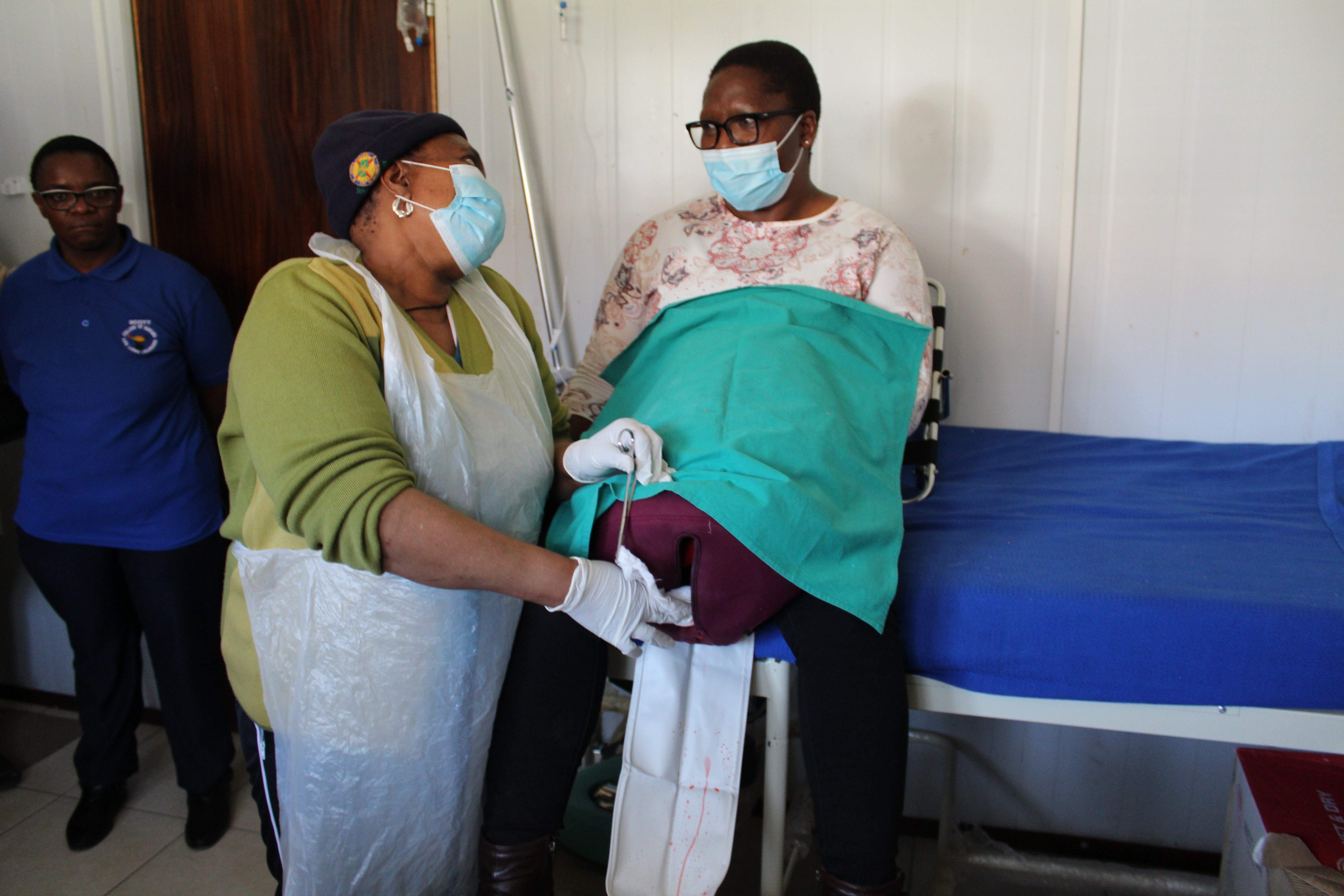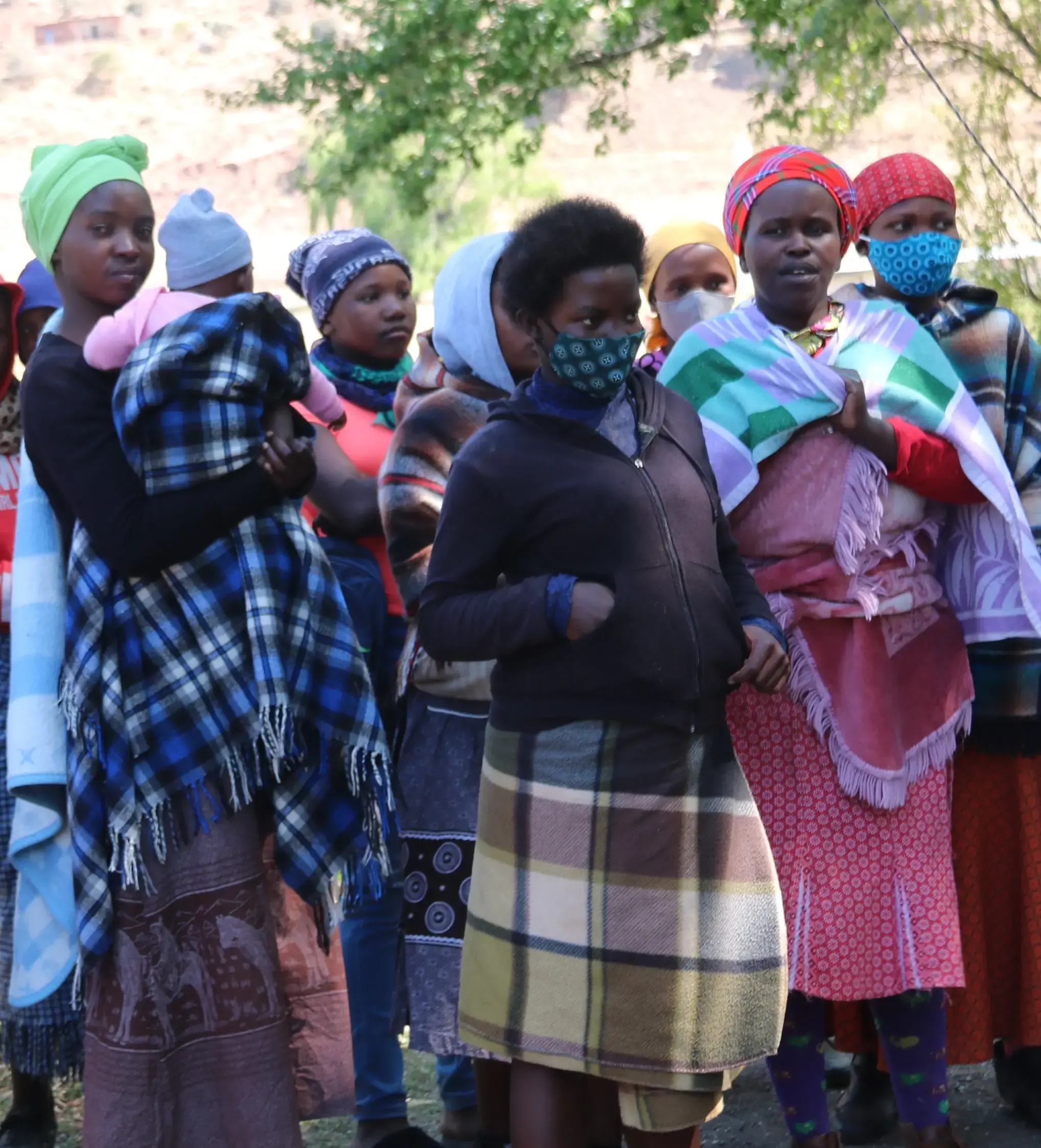She never forgets that fateful day in 2018 when the hospital had prepared for a mother, who was going to give birth for the fifth time to come and deliver her baby after having waited for some days at the Waiting Mother’s Home at Machabeng hospital in Qacha’sNek. The date and time for the delivery had been set, all preparations made, and the mother was fetched to come to theatre.

The Advanced Midwife at Machabeng hospital, Ms Khauhelo Phae remembers this day too well. When they fetched the mother from the Waiting Mothers home, all of them were anticipating a safe birth where a baby would be born. But this was not to be. The mother died due to losing a lot of blood – Obstetric Hemorrhage. “I have often asked myself, if we had donated blood, would we have saved this woman’s life?”
Statistics have shown that the number one killer of women due to childbirth in Lesotho is obstetric hemorrhage followed by hypertensive disorders. Out of concern for this, UNFPA, the United Nations Population Fund and the Ministry of Health brought together Midwives from hospitals around the country to introspect and seek ways to address the problem.
The refresher training, called “Helping Mothers Survive” was held at Scott School of Nursing for introspection and reviewing what could be dome to save mothers. The Midwives were able to use mannequins available at the institute which are used during training to minimize mistakes on real people.
During the training, the Midwives highlighted a lot of challenges they face while executing their work and discussed ways to address them. A Nurse Midwife at Thaba-Tseka Health Centre Mohlomi Rannyama remembers the day he was on call and was therefore called to the clinic just before midnight. When he got there he found that a mother, from Tlokoeng, which is three hours’ drive away from the clinic, had already given birth. “I realized that since mother and baby were still intertwined I had to try and separate them while they were still in the vehicle. When I had finished, I had to take the baby, who was very cold, first into the clinic and later fetch the mother. Both of them survived.”
He also successfully delivered a baby on a very cold winter’s night when electricity just suddenly switched off and he had to hold a cell phone using his mouth to use the torch as he had to use his hands to deliver the baby.
Representing the Ministry of Health, The PMTCT Manager Ms ‘Matsepeli Nchephe said the Ministry is concerned about the high rate of maternal deaths (618/ 100 000 live births) especially among adolescents and young people. Asked what could be the cause of the high rate of maternal deaths, she explained that it is a multi-sectoral phenomenon which could be due to many factors like the ministry’s systems, administrative or technical issues as well as the country’s topography.
On behalf of UNFPA, the SRHR Coordinator Ms Blandina Motaung expressed UNFPA’s concern on the high maternal mortality and said as thus making motherhood safer is a top priority for the fund as the organization works to achieve three transformative results, one of them being ending preventable maternal deaths. “We work at all levels to promote universal access to Sexual and reproductive health care and rights, including by promoting international maternal health standards. We also focus on increased utilization of integrated sexual and reproductive health services and reproductive rights for those who are left furthest behind.”
She added UNFPA has supported the government of Lesotho through the Ministry of Health in reviewing the midwifery curriculum and producing Maternal Death Reports while also strengthening midwifery services as strategies to reducing maternal deaths.
It is expected that the Midwives especially the Advanced Midwives who are in charge of Maternity wards will train others at the hospitals after the refresher training.





